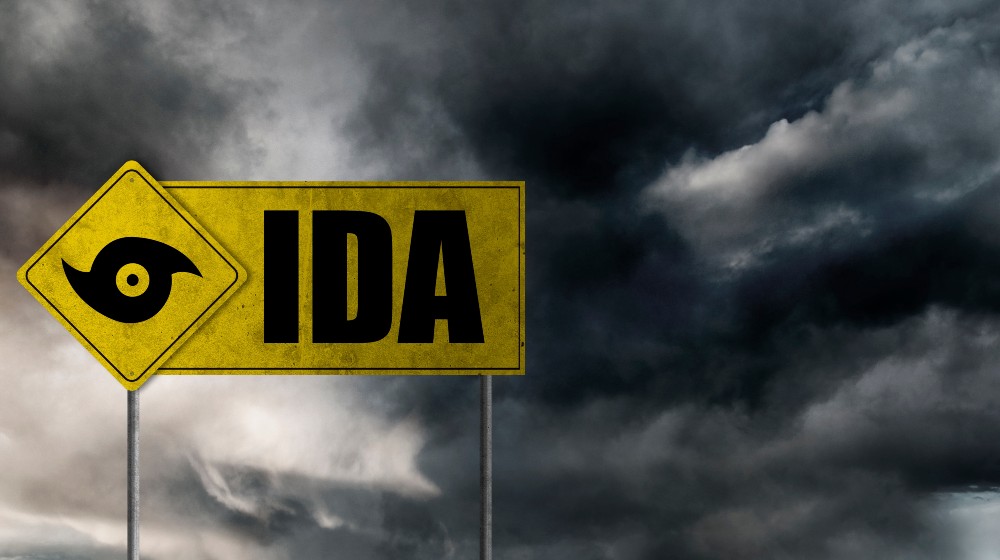Business
Oil Industry Hit Hard As Hurricane Ida Slam Gulf Coast

Last Sunday, US oil companies halted production in the Gulf Coast as Hurricane Ida slammed into Louisiana. Local oil facilities suspended 1.74 million barrels per day production, as plants shut down and secured their equipment.
Meanwhile, managed worked round-the-clock to herd workers to safety. The Gulf Coast supplies around 17% of the country’s total oil requirements.
RELATED: Crude Oil Prices Go Down As COVID Fears Return
Hurricane Ida Slams Louisiana
Hurricane Ida landed on the Louisiana coast as a Category 4 storm. It made landfall near Port Fourchon, which is the base for the Louisiana Offshore Oil Port (LOOP). LOOP is the largest private crude oil terminal in the United States. In addition, more than 94% of natural gas production in the Gulf of Mexico also had to shut down.
According to the Bureau of Safety and Environmental Enforcement Energy (BSEE), energy companies evacuated a total of 288 oil platforms. More than half of the rigs companies had evacuated 288 platforms – more than half of those in the Gulf of Mexico – as of Sunday, and all 11 drilling rigs, according to BSEE.
Refineries In The Hurricane’s Path
Unfortunately, many refineries lay across Hurricane Idea’s path. In fact, six plants belong to major oil companies are still shut down as of today. These include PBF, Phillips, Shell, Marathon, and two Valero refineries.
Andy Lipow, president of Lipow Oil Associates, said that assessing the damage is the main concern for the next few days. “It's now a waiting game to assess whatever wind and flooding damage will be caused as the hurricane passes through the area,” he said.
Lipow said that Hurricane Ida's landfall trajectory is “one of the worst possible for the oil industry”. The storm’s path can impact major pipelines that transport oil from the Gulf Coast to the East Coast markets.
The six refineries that closed temporarily “account for about 1.7 million barrels per day of refinery capacity, representing 9% of the nation's total,” Lipow added. Meanwhile, three other refineries, Exxon, Placid, and Kratz Springs, are located in the Baton Rouge area.
Lipow noted that due to the storm, the three are operating at reduced levels. They account for 700,000 barrels of oil daily. This is equivalent to 3.5% of US daily usage.
Oil Prices Surge Ahead of Hurricane Ida
Getting these refineries back to work meant getting the workers back to their sites. At this point, sites remain unavailable so repairs and maintenance will take some time. This can lead to a prolonged impact on oil prices.
Prior to Ida’s landfall, US oil prices climbed up as companies expected supplies to decline. Gasoline futures rose 2.75% Sunday to $2.33 a gallon. Last Friday, it was only $2.27. Meanwhile, US oil prices rose a mere 0.6% Sunday evening.
Western Texas Intermediate traded at $69.30 a barrel. This is up from the $68.74 price last Friday. Now, investors remain wary as agencies try to untangle the mess left behind by the storm. It will take some days before Hurricane Ida’s full extent will become known.
In contrast, the week after Hurricane Katrina in 2005 saw immediate rises in oil prices. The average price of a gallon shot up 46 cents to $3.07/gallon. This represented an 18% jump in prices and is the largest increase since the 1991 Gulf War.
Louisiana, New Orleans Knocked Out By Hurricane Ida
The force of Hurricane Ida was too much for Louisiana, as it hit the state with 150 miles per hour winds amid torrential downpours. It also caused surging waters to engulf the shoreline. As a result, pounding surf submerged a majority of the shoreline under several feet of water.
In New Orleans, power was out for the entire city by Sunday night. All eight transmission lines servicing New Orleans failed simultaneously. In fact, one transmission tower collapsed into the Mississippi River, according to the Jefferson Parish Emergency Management Department.
As a result, President Joe Biden declared a major disaster in Louisiana. He ordered federal assistance to help with the recovery efforts. The relief program will cover more than 24 parishes hit hardest by the storm.
Watch the KHOU 11 video reporting that Hurricane Ida: Storms strengthens as it takes air at northern Gulf Coast:
Do you think oil prices will skyrocket once the extent of the damages caused by Hurricane Ida gets out? How soon do you see oil production normalize?
Let us know what you think about the effect of Hurricane Ida on oil production. Share your comments below.








1 Comment
My biggest concern is for the workers having to comeback to uncertain conditions of the rigs.It’s bad enough under regular ordinary situations that are faced but now this too. My heart and prayers goes out to each and everyone that are involved. May the peace of the Lord be w/you. Amen.